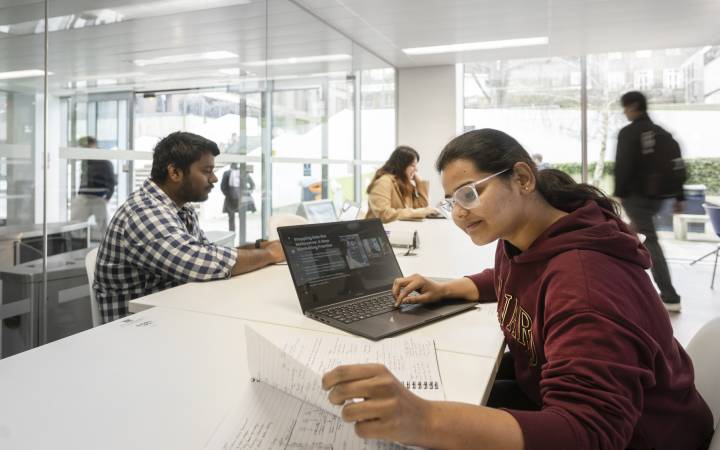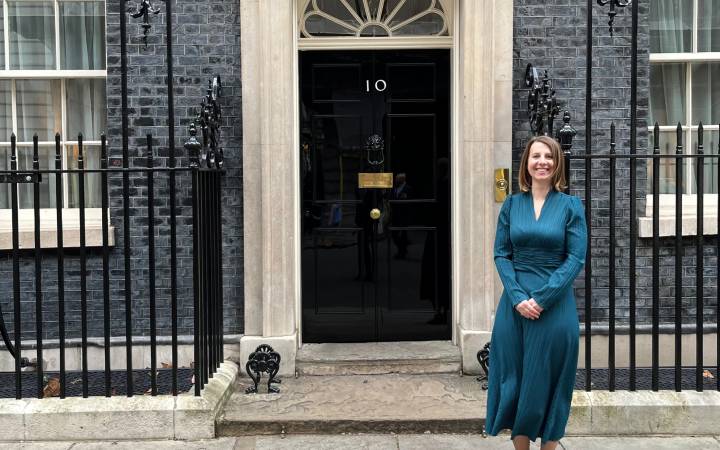Students from the School of Geography, Geology and the Environment ‘think critically to make a difference' for South African settlement
Posted Thursday 5 March 2015
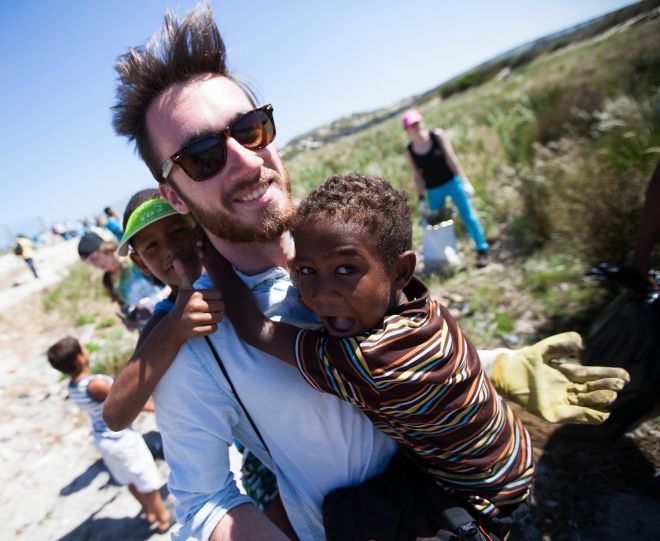 A student with some of the village children - Photo courtesy of Corinne CummingKingston University students and academics flew to South Africa for a two-week field course that saw them actively involved in the lives of locals in different locations. This included working with the residents of Village Heights - an impoverished informal settlement on the outskirts of Cape Town.
A student with some of the village children - Photo courtesy of Corinne CummingKingston University students and academics flew to South Africa for a two-week field course that saw them actively involved in the lives of locals in different locations. This included working with the residents of Village Heights - an impoverished informal settlement on the outskirts of Cape Town.
Working with the community and with landscape architects and representatives from the Cape Town municipality the students cleared land to create a community garden, shifting 250 bags of household waste, concrete blocks, old mattresses and rubber tyres. Village Heights inhabitants often build their homes with corrugated iron, offcuts of wood, polythene and other found materials. They even created benches, chairs and a see-saw from the debris. The organic compost for the garden was funded by the carbon credits the students bought to offset the carbon footprint caused by their trip.
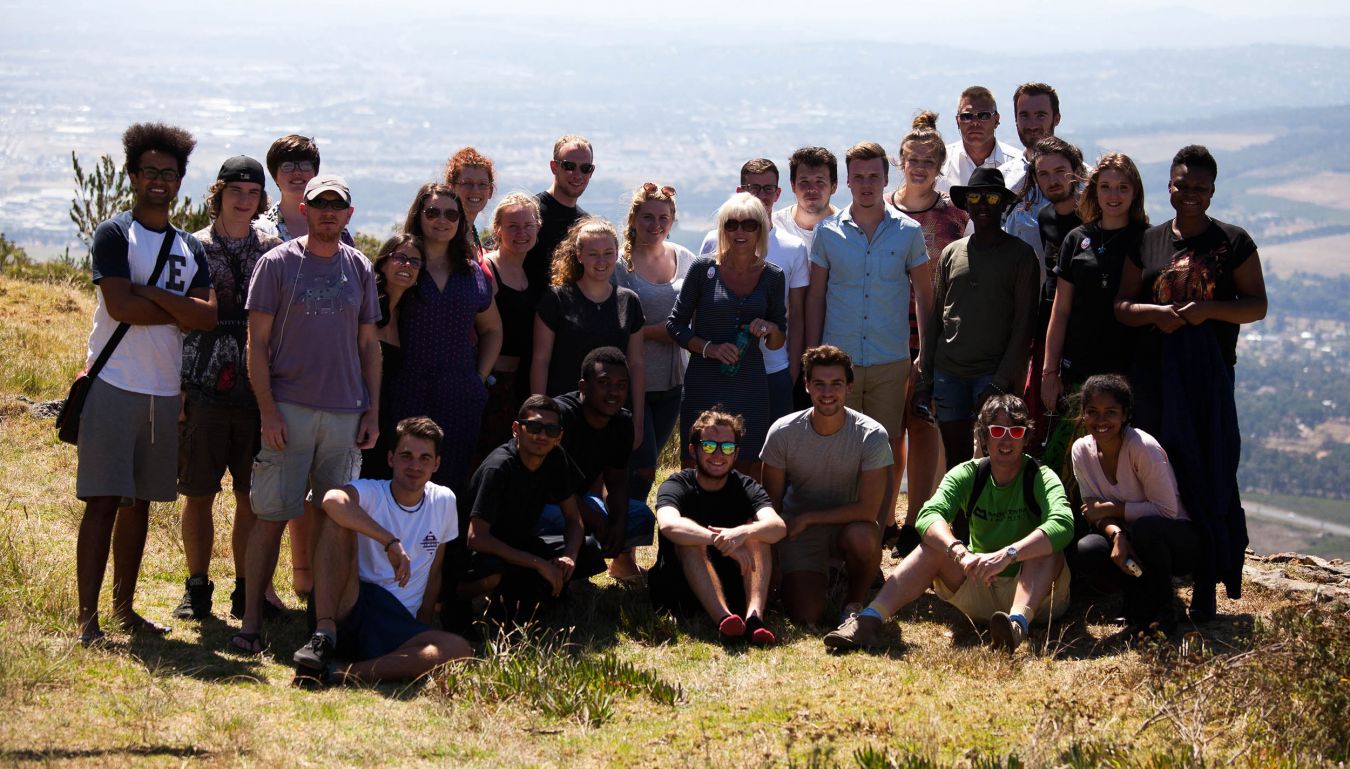 The school of Geography, Geology and the Environment students on their trip to South Africa - Photo courtesy of Corinne Cumming
The school of Geography, Geology and the Environment students on their trip to South Africa - Photo courtesy of Corinne Cumming
The School of Geography, Geology and the Environment were invited to Village Heights through links Kingston University lecturers had built with the Cape Town municipality over several years. This trip gives students a unique opportunity to work with locals and debate development issues in a real-life context while learning more about the challenges facing residents while outside of a classroom setting.
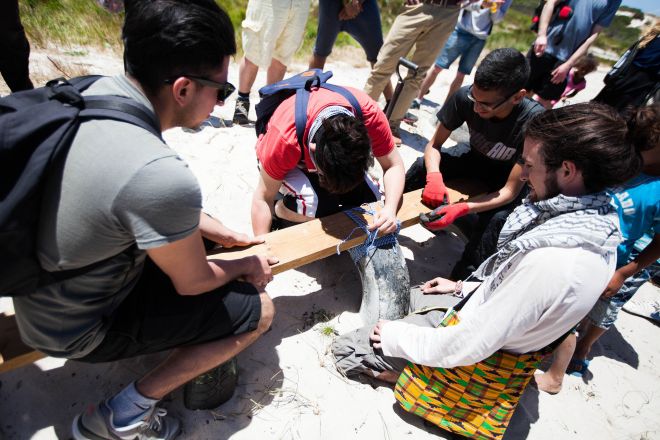 Making use of found materials to create playground activities - Photo courtesy of Corinne CummingThe students all study the Development Geographies module, which introduces critical issues of development including resource management, poverty, exclusion, inequality, natural hazards, gender and conflict. The ethos behind the trip was think critically to make a difference. Different days focused on different issues such as socio-spatial inequality, legacies of apartheid, rural development and eco-tourism, carbon-neutral agricultural and ecological conservation strategies and land management challenges.
Making use of found materials to create playground activities - Photo courtesy of Corinne CummingThe students all study the Development Geographies module, which introduces critical issues of development including resource management, poverty, exclusion, inequality, natural hazards, gender and conflict. The ethos behind the trip was think critically to make a difference. Different days focused on different issues such as socio-spatial inequality, legacies of apartheid, rural development and eco-tourism, carbon-neutral agricultural and ecological conservation strategies and land management challenges.
• Find out more about studying Geography at Kingston University
• Find out more about the School of Geography, Geology and the Environment at Kingston University.
Contact us
General enquiries:
Journalists only:
- Communications team
Tel: +44 (0)20 8417 3034
Email us

